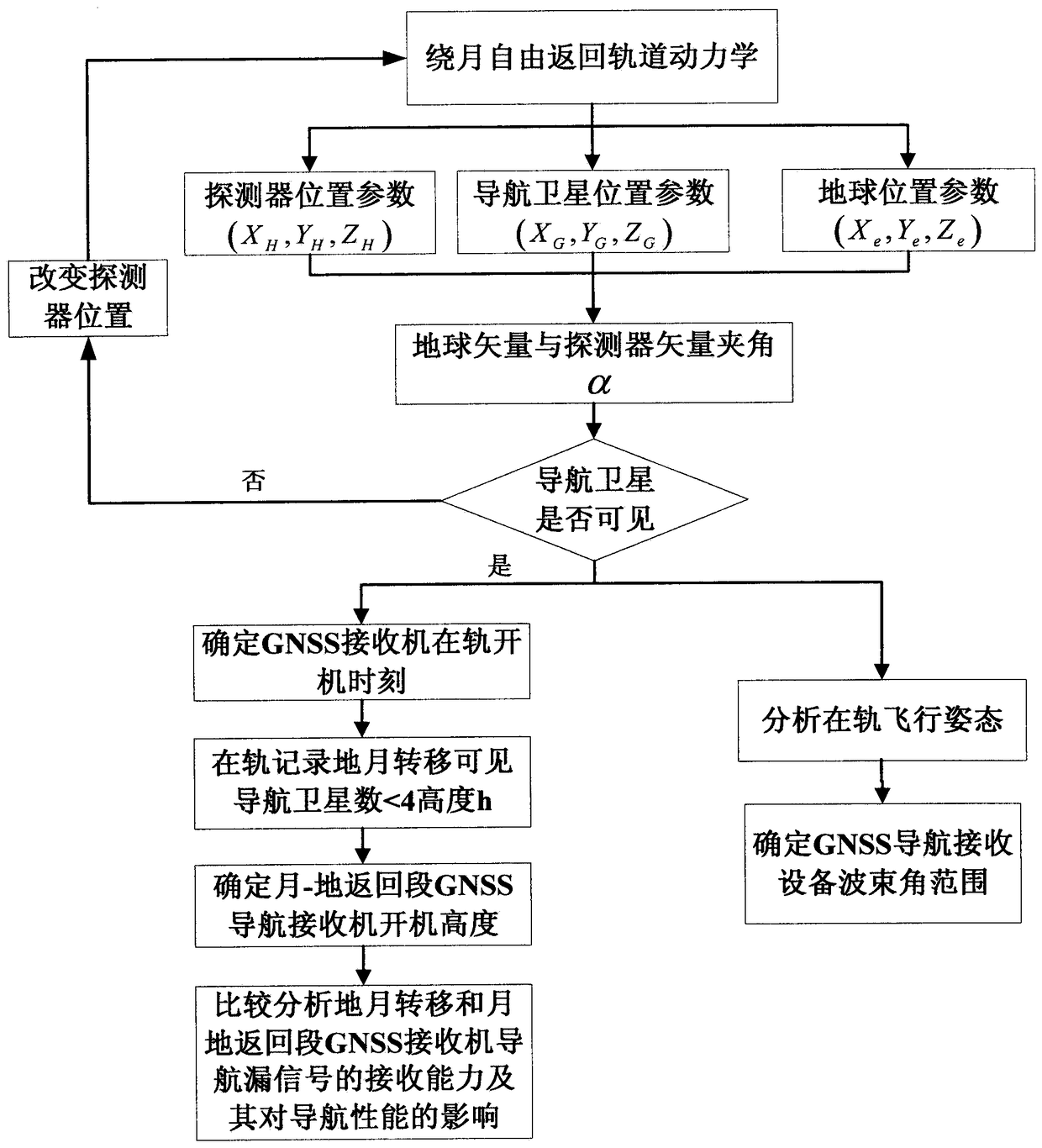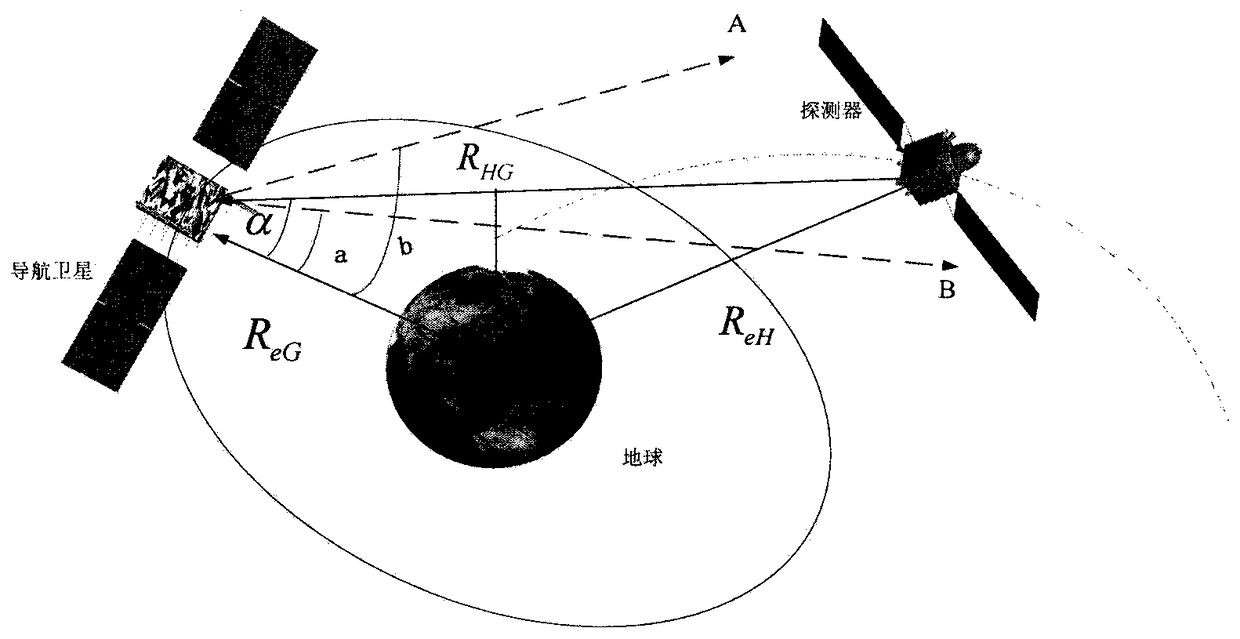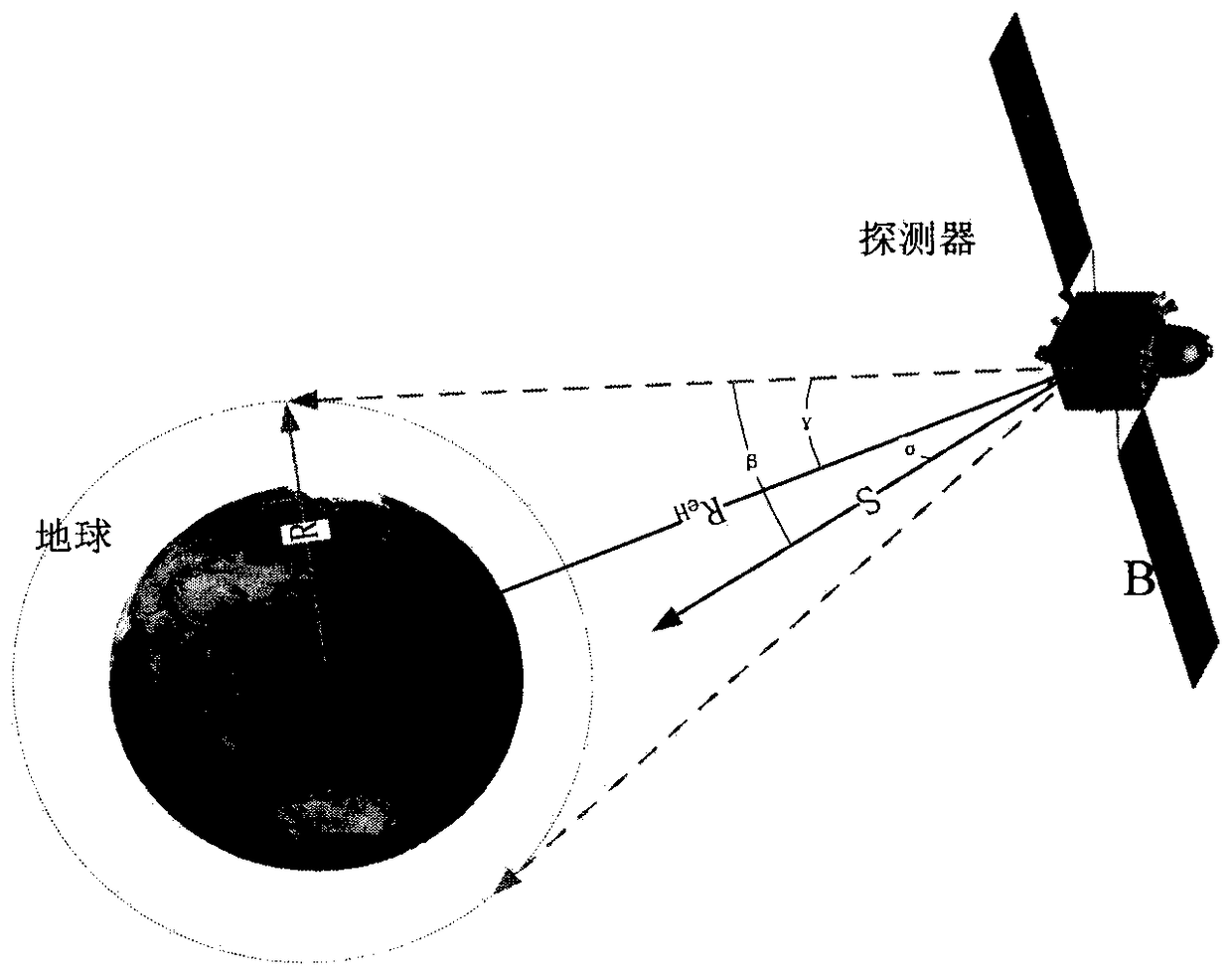A positioning on-orbit test verification method based on navigation satellite leakage signals
A navigation satellite, experimental verification technology, applied in the field of deep space exploration, to achieve the effect of accurately reflecting and expanding the scope of application of the project
- Summary
- Abstract
- Description
- Claims
- Application Information
AI Technical Summary
Problems solved by technology
Method used
Image
Examples
Embodiment Construction
[0025] The present invention will be described in detail below in conjunction with the accompanying drawings and specific embodiments.
[0026] The global satellite navigation and positioning system (GNSS) navigation signal receiving equipment of high-orbit satellites and deep space probes realizes positioning by receiving leakage signals such as navigation satellite signals from the opposite side of the earth and side lobe signals of navigation satellites, which can solve the problem of insufficient coverage of ground measurement and control stations. The problem that the accuracy of orbit determination cannot meet the requirements of flight missions provides a new means of orbit determination for high-orbit satellites and deep space probes. Utilizing the characteristics of the free return orbit, it is possible to fully verify the performance of the navigation satellite signal receiving equipment in the process of distance from far to near and from near to far within a large r...
PUM
 Login to View More
Login to View More Abstract
Description
Claims
Application Information
 Login to View More
Login to View More - R&D
- Intellectual Property
- Life Sciences
- Materials
- Tech Scout
- Unparalleled Data Quality
- Higher Quality Content
- 60% Fewer Hallucinations
Browse by: Latest US Patents, China's latest patents, Technical Efficacy Thesaurus, Application Domain, Technology Topic, Popular Technical Reports.
© 2025 PatSnap. All rights reserved.Legal|Privacy policy|Modern Slavery Act Transparency Statement|Sitemap|About US| Contact US: help@patsnap.com



